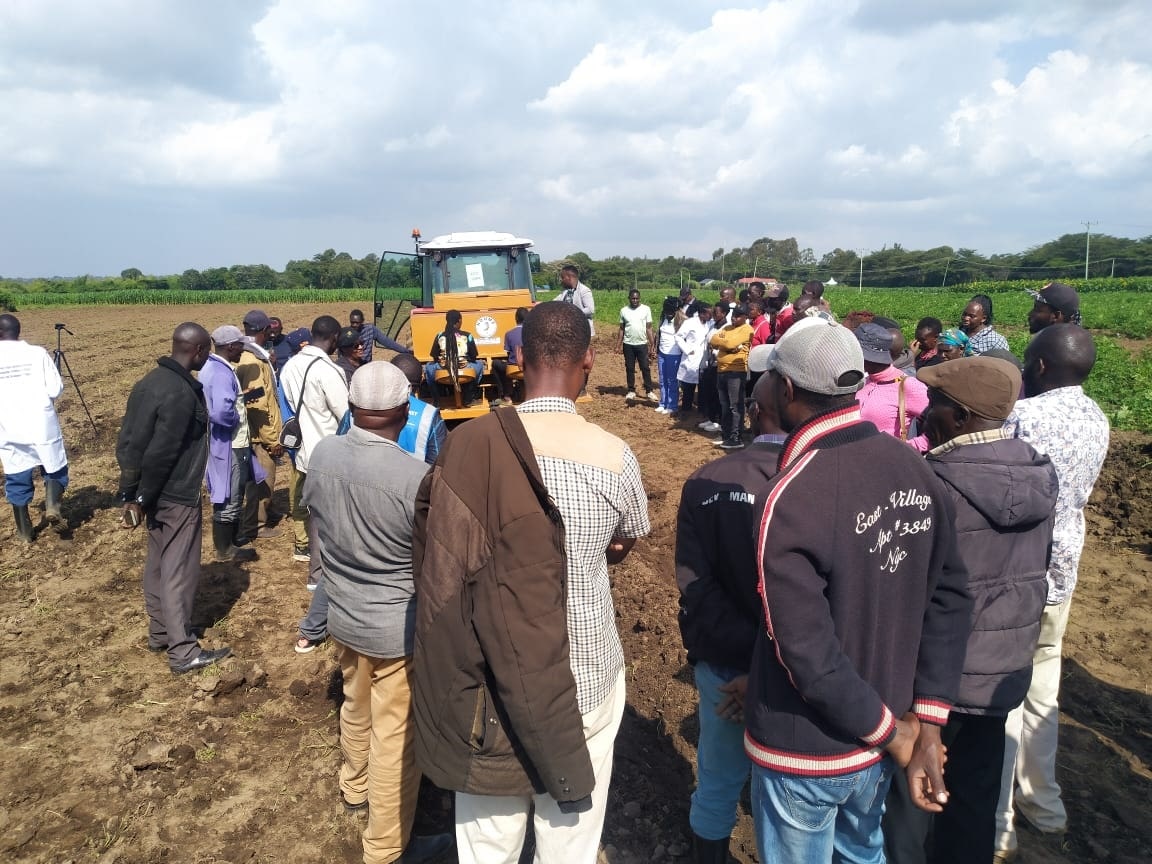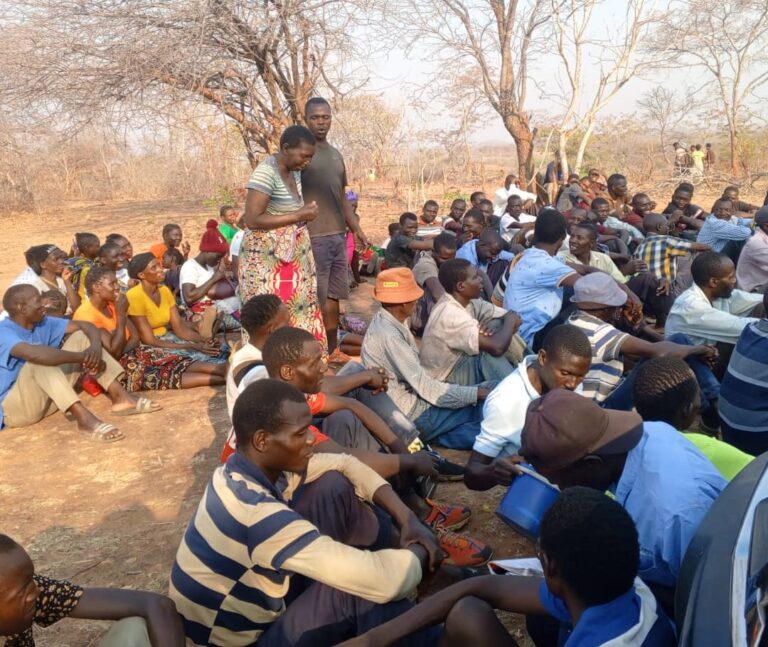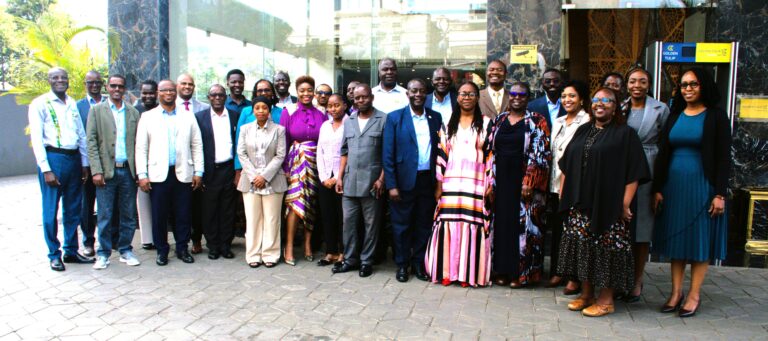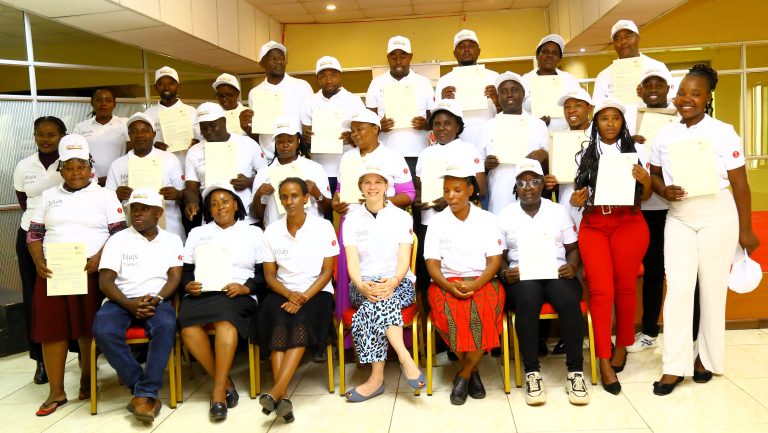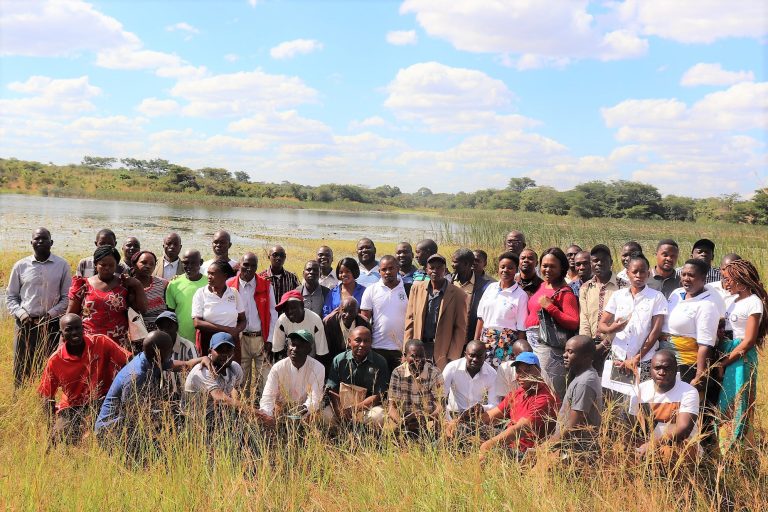Egerton University has intensified its efforts to build the capacity of smallholder farmers in climate-smart agriculture (CSA) as part of a broader push to ensure food and nutritional security while improving household incomes in Kenya’s Rift Valley region.
The initiative aims to promote sustainable agricultural development and enhance the resilience of rural communities against the adverse effects of climate change.
Speaking at a farmers’ field day held at the university’s Agro-Science Park, Prof. Antony Kibe, an agronomist from Egerton’s Department of Crops, Horticulture and Soils, emphasized the program’s key components. “The initiative incorporates farmer field days, research, training, and extension services aimed at helping farmers adapt to climate change impacts and build more resilient agricultural systems,” he said.
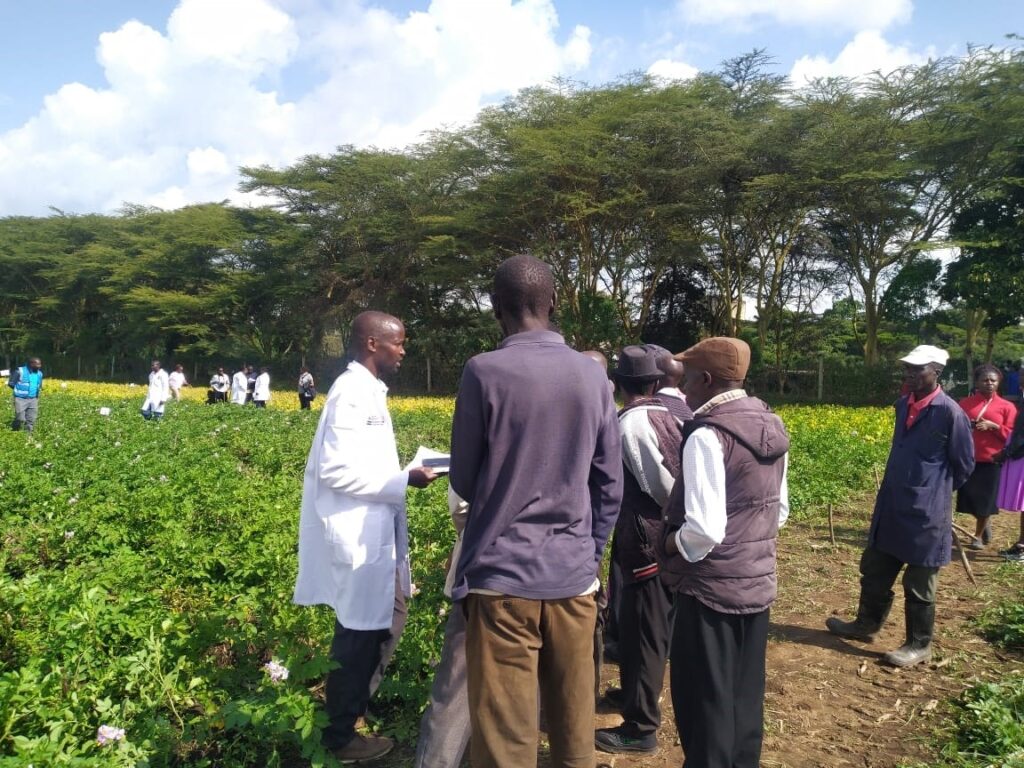
Prof. Kibe, who also heads the Kenya Sustainable Potato Initiative (KSPI), underscored the university’s focus on practical solutions. “Climate Smart Agriculture involves actions that sustainably increase productivity, enhance adaptation, reduce greenhouse gas emissions to a possible zero, and enhance the achievement of national food security and development goals,” he stated.
Farmers attending the event were introduced to climate-resilient crops, including cassava, sweet potato, finger millet, green gram, and sorghum. Over 500 smallholder farmers, extension officers, and agricultural stakeholders were trained by a team of experts including ecologists, agro-meteorologists, agronomists, soil scientists, and plant pathologists from various learning and research institutions.
“The trainings are aimed at promoting CSA practices that not only increase productivity but also build resilience and protect the environment,” Prof. Kibe noted, adding that these practices are essential for addressing challenges such as unpredictable weather patterns, soil degradation, and water scarcity.
The field day featured hands-on demonstrations with crops like potato, beans, sunflower, and cassava. Participants also received training on sustainable farming techniques including agroforestry, conservation tillage, and integrated soil fertility management.
“By adopting drought-tolerant crops and water management techniques, farmers can better withstand the impacts of droughts and floods,” said Prof. Kibe. He reiterated that sustainable agriculture must focus on increasing profitable farm income, protecting the environment, and improving the quality of life for farming communities while meeting growing demands for food and fibre.
Egerton University is further supporting CSA uptake through the development and promotion of drought and heat-tolerant crop varieties, the use of crop waste for energy and compost, farmer education on crop insurance, and the reduction of post-harvest losses with agricultural machinery.
The university is also encouraging the use of biological pesticides, zero tillage, mulching, and warehouse receipt systems. “We are making use of waste material for biogas, which contributes to both environmental conservation and energy generation,” Prof. Kibe added.
On livestock farming, CSA approaches include shifting from cattle to more drought-resilient animals like goats and camels, improving mobility to access pasture and water during dry seasons, and implementing index-based livestock insurance under the Kenya Livestock Insurance Programme.
In dairy farming, CSA measures involve heat-resistant animal shelters, feed supplementation, reliable water supply, and improved milk collection systems to reduce spoilage. “Biogas systems are also helping households access clean energy while reducing emissions from manure,” explained Prof. Kibe.
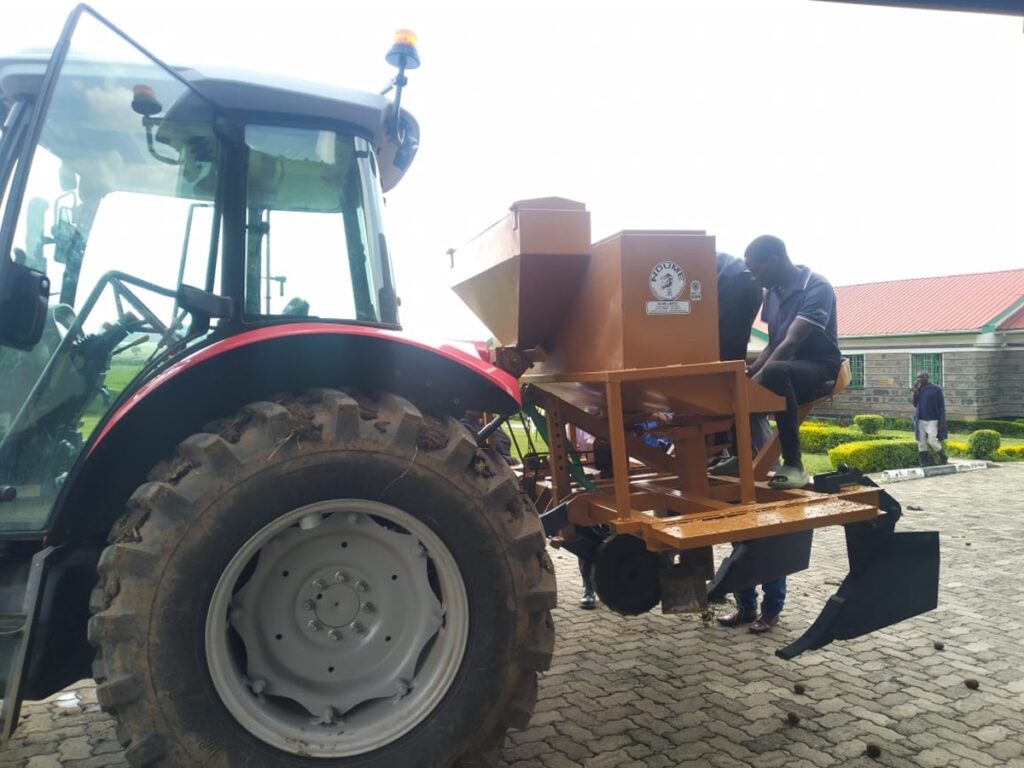
In aquaculture, Prof. Kibe said the university advocates for integrated systems that use poultry waste as fertilizer and feed for fish farming, as well as the adoption of finger-pond technology, where ponds are dug in wetlands and naturally filled with water and fish during high lake levels.
During the field day, farmers participated in a chisel ploughing demonstration. “Unlike disc ploughing, chisel ploughing helps retain soil moisture, reduce erosion, and enhance carbon sequestration – all of which are vital for sustainable land management,” said Prof. Kibe.
The farmers were also introduced to solar-powered irrigation systems, providing a renewable energy solution for regions facing water scarcity and unreliable electricity. “This energy-efficient innovation offers a lifeline to farmers in arid areas,” Prof. Kibe remarked.
In collaboration with the Farm to Market Alliance, Egerton University is also helping farmers access new technologies, receive training, and connect to markets. “We will go on expanding access to climate-smart agriculture innovations through continued field demonstrations and farmer training,” he affirmed.
The event also featured demonstrations on rapid seed multiplication, aimed at helping farmers produce early seeds and access quality planting material more quickly.
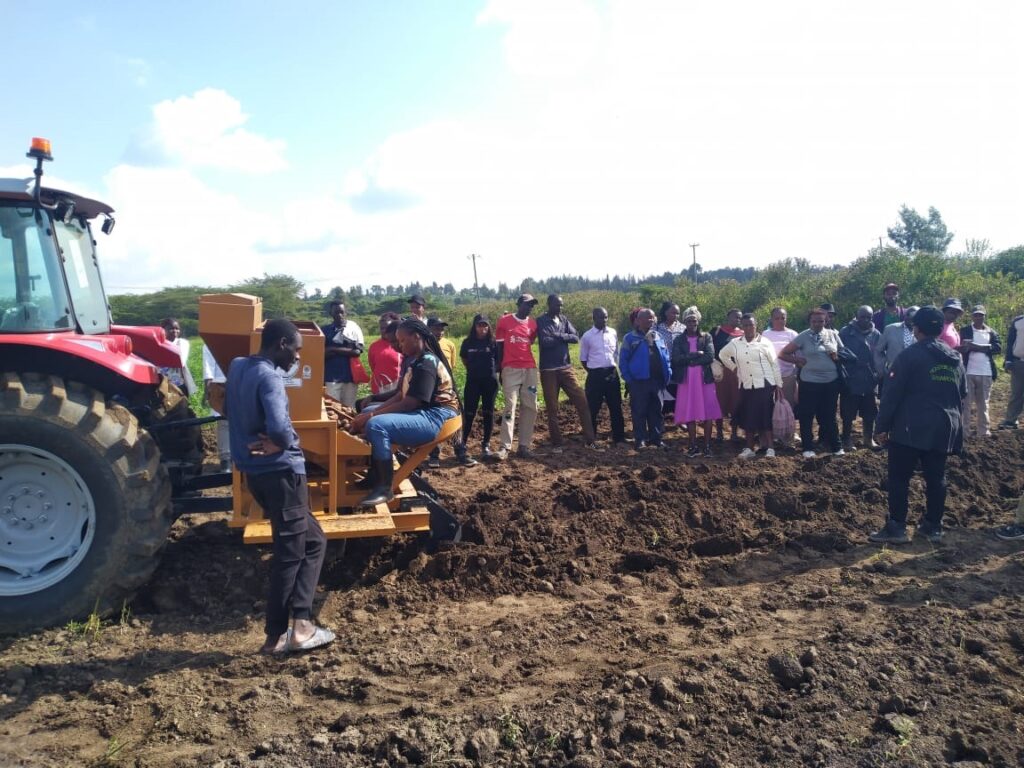
According to the Ministry of Agriculture, Kenya could face economic losses of up to three per cent of GDP by 2030, and five per cent by 2050, if climate change impacts on the food system are not addressed.
To mitigate these risks, the Ministry is leading the implementation of the 2022–2026 Climate Smart Agriculture Multi-Stakeholder Platform Strategic Plan (CSA-MSP), which seeks to equip farmers with climate adaptation practices and increase food production to stabilize food prices.
Despite Africa having 60 per cent of the world’s arable land, the continent continues to suffer from food insecurity. With the global population projected to surpass nine billion by 2030 and shrinking farmland due to population pressure, Prof. Kibe stressed the need for continuous innovation. “Countries must continually innovate to increase food production to feed the growing population,” he said.


